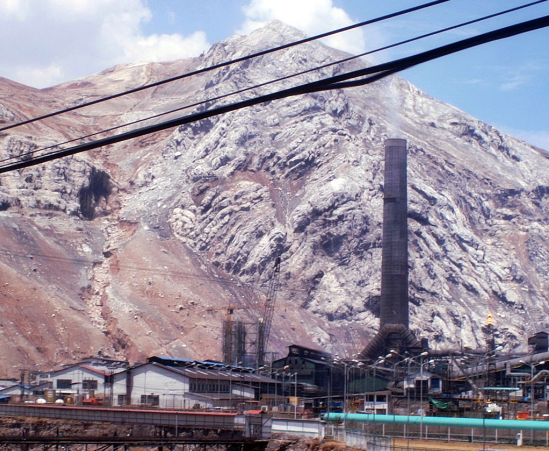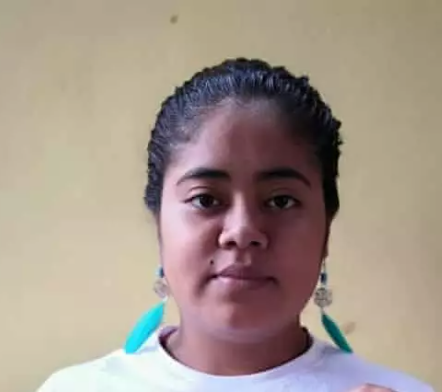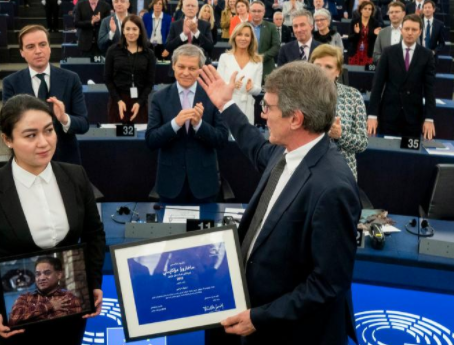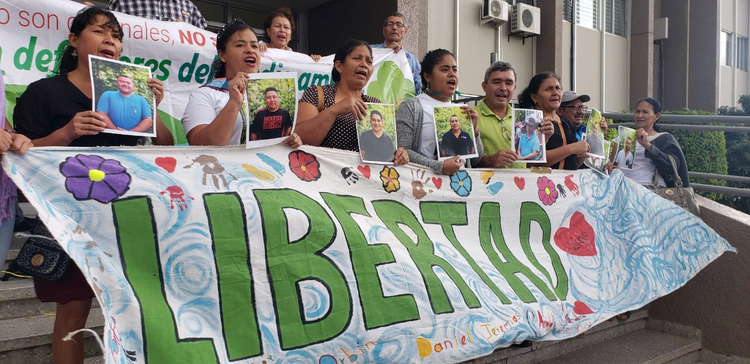- Details
-
Published: Thursday, 21 January 2021 14:29
Passage
Liam Meisner
 Any future government that’s concerned about environmental and human rights issues will have to rein in mining companies operating abroad.
Any future government that’s concerned about environmental and human rights issues will have to rein in mining companies operating abroad.
Walter Aduviri knows better than anyone what pushing back against Canadian corporate interests can do. In 2011, Aduviri, an Indigenous Aymara leader from Peru’s Puno region, helped lead a protest movement against a silver mine in the region operated by Bear Creek Mining, a Canadian company. The Peruvian government eventually cancelled the mining concession, but Aduviri was hounded for years by court cases brought against him by public prosecutors for the protests, until he was jailed in 2019, a year after being elected governor of Puno.
Aduviri, a supporter of Bolivian President Evo Morales, was released from prison this past December through a Supreme Court ruling that suspended his sentence. However, the judicial harassment he and other leaders of the Aymarazo protest movement have faced is a reminder of Canada’s leading role in the global resource extraction system that devastates environments and communities in the Global South and suppresses popular resistance through violence and coercion.
Read more ...
- Details
-
Published: Wednesday, 07 October 2020 17:00
Nina Lakhani
The Guardian

The Guapinol community, on the country’s north coast, has become militarized in an effort to defend the river that supplies it. Gabriela Sorto has not seen or spoken to her father in six months, since the Honduran government’s draconian Covid-19 measures banned most travel and prison visits.
Porfirio Sorto Cedillo, a 48-year-old builder and farm worker, is one of eight protesters held in pre-trial detention since 2019 for alleged crimes linked to their opposition to an iron oxide mine which threatens to contaminate their water supply. Five more water defenders from Guapinol, a small low-income community on the country’s north coast, could also soon be sent to jail.
The massive open pit mine, owned by one of the country’s most powerful couples, was sanctioned without community consultation inside a protected national park in a process mired by irregularities, according to international experts.
In response to criminal complaints filed by the company Inversiones Los Pinares, 32 people, including one man who died three years before the alleged incidents, have been charged with multiple offences and the community’s grassroots group falsely accused of ties to organized crime.
The community has been militarized, and its leaders subjected to threats, harassment and smear campaigns. Several residents fled, seeking asylum in the US to escape criminal persecution, in a case widely condemned by lawyers, rights groups and US and European lawmakers.
“My dad has been jailed for defending a river which gives our community life, for trying to stop the exploitation of natural resources by rich companies who the government helps to terrorize us,” said Sorto, 28. “Every day that passes we know less about him. He’s weak, he’s had Covid symptoms, we worry about his health and safety in the prison.”
Read more ...
- Details
-
Published: Tuesday, 29 September 2020 16:30
EuroNews

The Parliament awards the Sakharov Prize every year to honour exceptional individuals and organisations defending human rights and fundamental freedoms. In 2019 the prize was awarded to Ilham Tohti, an Uyghur economist fighting for the rights of China’s Uyghur minority. Nominations for the Sakharov Prize can be made by political groups and/or groups of at least 40 MEPs.
The democratic opposition in Belarus, is represented by the Coordination Council, initiative of brave women - main opposition candidate Sviatlana Tsikhanouskaya; Nobel Laureate Svetlana Alexievich; musician and political activist Maryia Kalesnikava; and political activists Volha Kavalkova and Veranika Tsapkala - as well as and political and civil society figures - video blogger and political prisoner Siarhei Tsikhanouski; Ales Bialiatski, founder of the Belarusian human rights organisation Viasna; Siarhei Dyleuski; Stsiapan Putsila, founder of the Telegram channel NEXTA; and Mikola Statkevich, political prisoner and presidential candidate at the 2010 election.
Read more ...
- Details
-
Published: Friday, 25 September 2020 16:28
Jackie McVicar
AmericaMagazine

Every Wednesday morning, Gabriela Sorto wakes up early to make lunch for her dad, Porfirio. He has not been convicted of a crime but, along with six other local men from Guapinol, Honduras, he has been held without bail in pre-trial detention for more than a year. The incarcerated men were part of a local campaign to protect water sources in their community.
“He’s in jail for defending the Guapinol and San Pedro Rivers, for defending life,” says the 26-year-old, who has become the public face of her father’s plight. Before his arrest, Mr. Sorto led the family ministry at his parish and worked as a mason. “I’m really proud of him,” Ms. Sorto says.
Due to Covid-19 restrictions, the seven men, plus another who has been in jail since December 2018, have not been allowed a family visit since March. Once a week, their loved ones have special permission to send them a home-cooked meal plus extras like green avocados and tortillas that will help them get through the week.
Read more ...
 Any future government that’s concerned about environmental and human rights issues will have to rein in mining companies operating abroad.
Any future government that’s concerned about environmental and human rights issues will have to rein in mining companies operating abroad.


